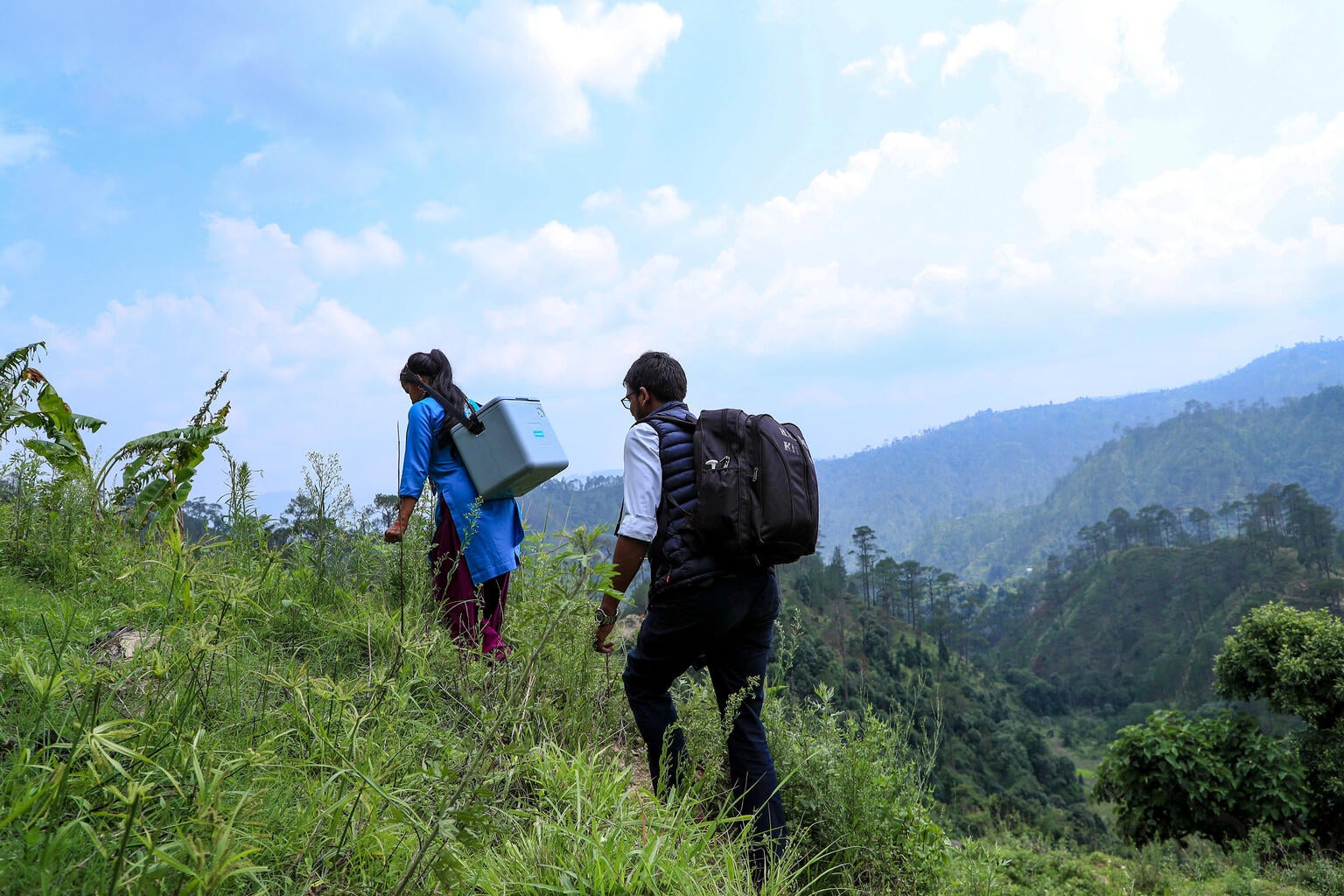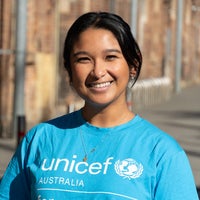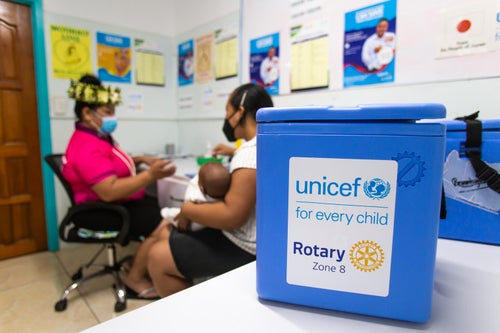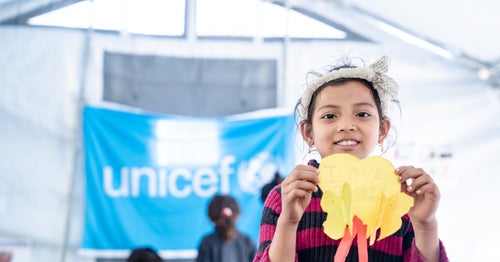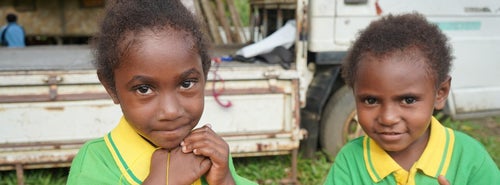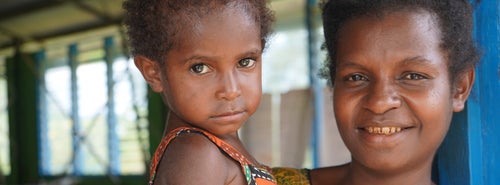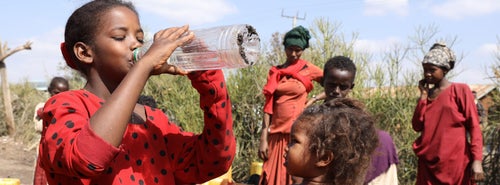UNICEF believes no child should die of a preventable disease. That’s why we provide vaccines to almost half the world's children under five, every year.
Together with our partners, we support vaccination programs for numerous diseases in over 109 countries. It's a huge job and it’s only possible through the sheer determination of thousands of volunteers and health professionals.
These photos show the incredible lengths they’ll go to keep children safe from disease.
Health workers climb mountains
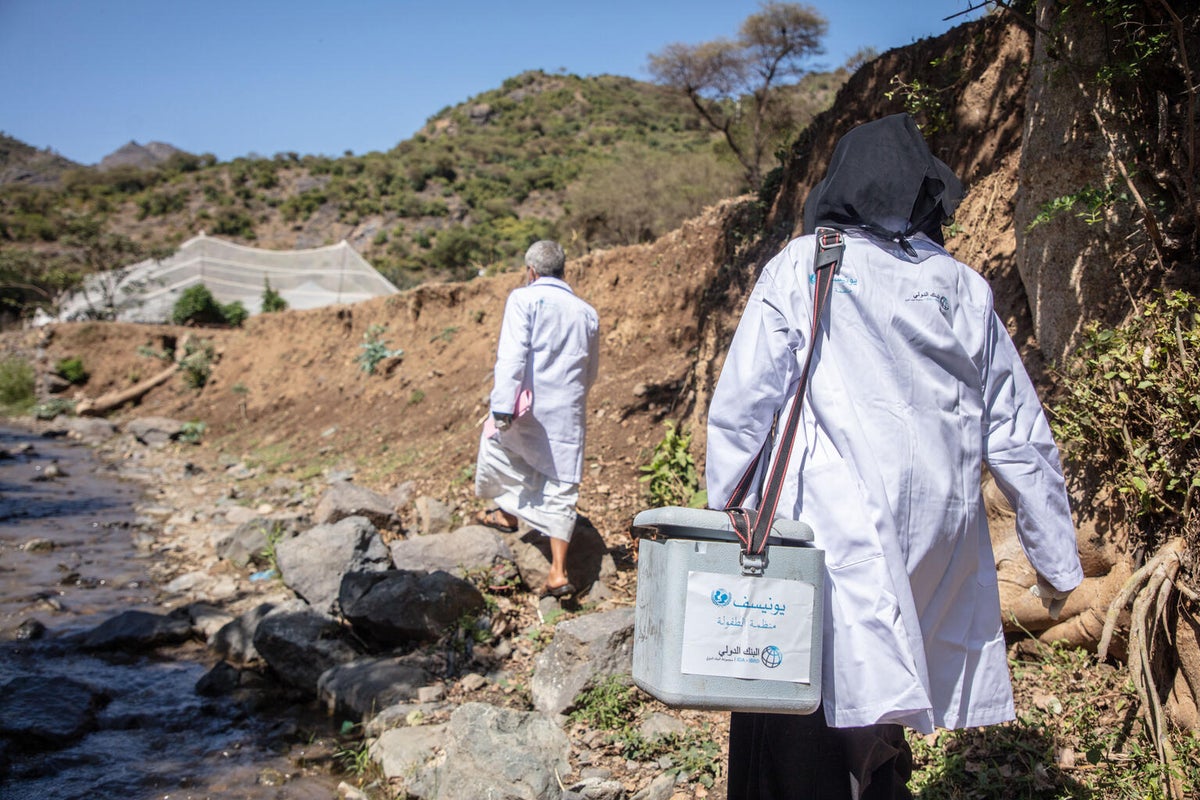
Wars can be the perfect environment for disease to spread. With many hospitals and clinics in Yemen bombed or abandoned, it’s estimated one child dies every ten minutes from a preventable disease.
With no end in sight to the conflict, UNICEF and partners are responding on a massive scale. Last year, a campaign was initiated in response to a measles outbreak in the district of Aden. In total, 1.2 million babies were immunised against measles, mumps and rubella.
Each vaccinator has incredible determination in crossing battle lines, mountains and valleys to vaccinate children.
They cross rivers...
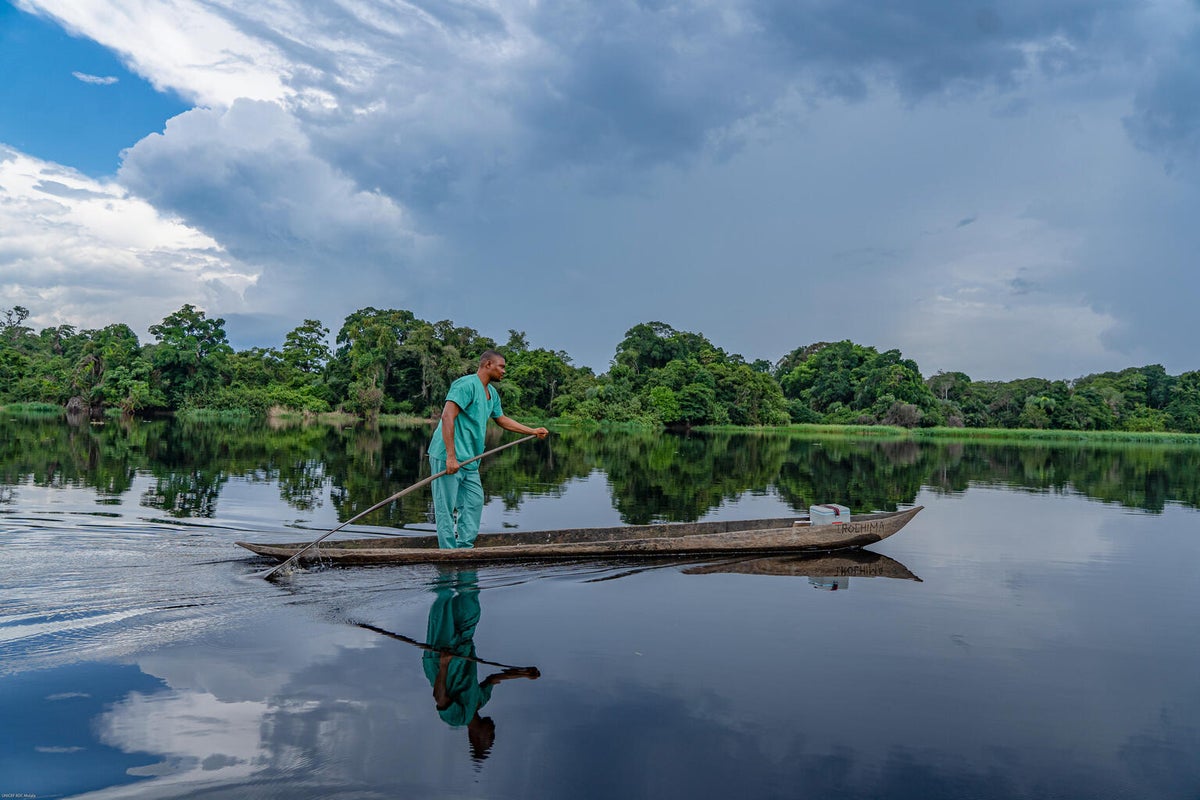
UNICEF procured 2.3 billion vaccines in 2021. Their journeys start in our supply warehouses and end in every corner of the world.
No matter where they are, children who are vaccinated have a better chance to survive, thrive and reach their potential. That’s why UNICEF helps vaccinates little ones even in the hardest to reach places - including the children on the other side of this river.
The persistence of health workers across the world pays off - with immunisation saving more than two million lives each year from deadly childhood diseases like measles, diarrhoea and pneumonia.
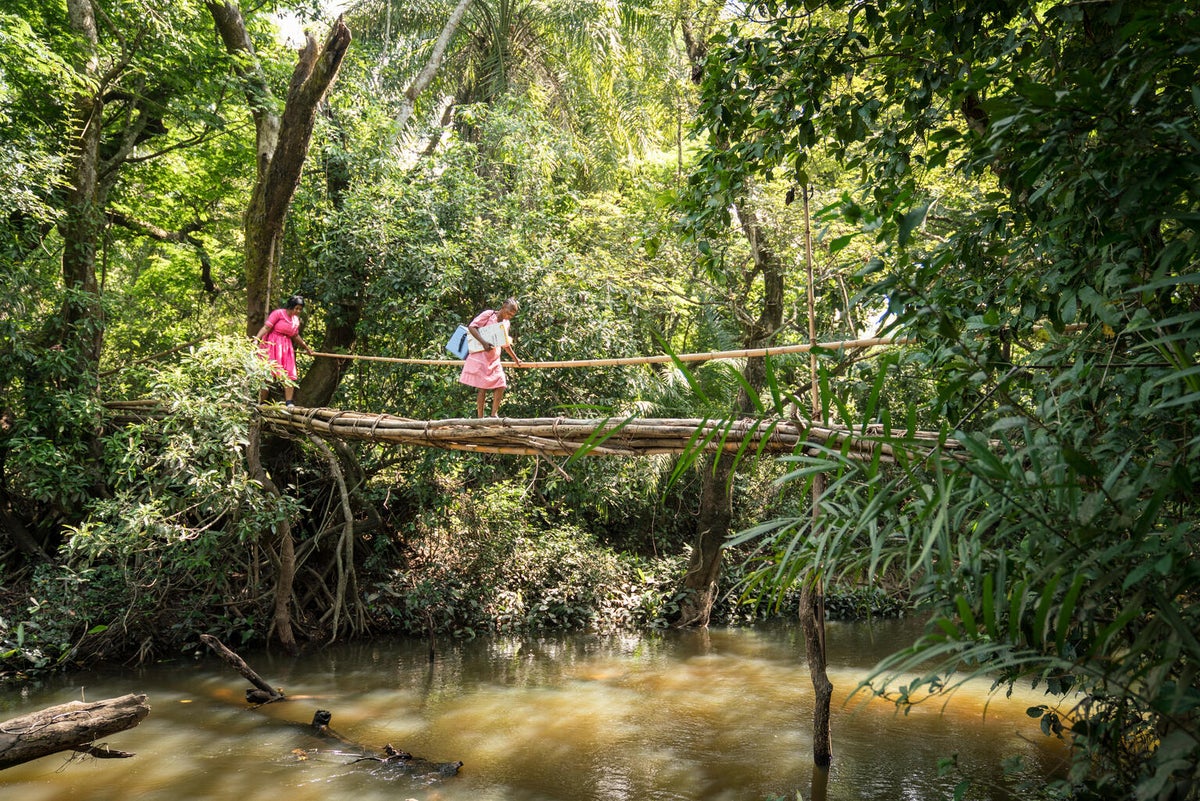
Getting vaccines to remote communities isn’t enough. To stay effective, vaccines need to be kept cold in a special carrier. If at any stage the vaccine’s temperature drops below two degrees or rises above eight, it can become unusable.
They drive down long, lonely roads...
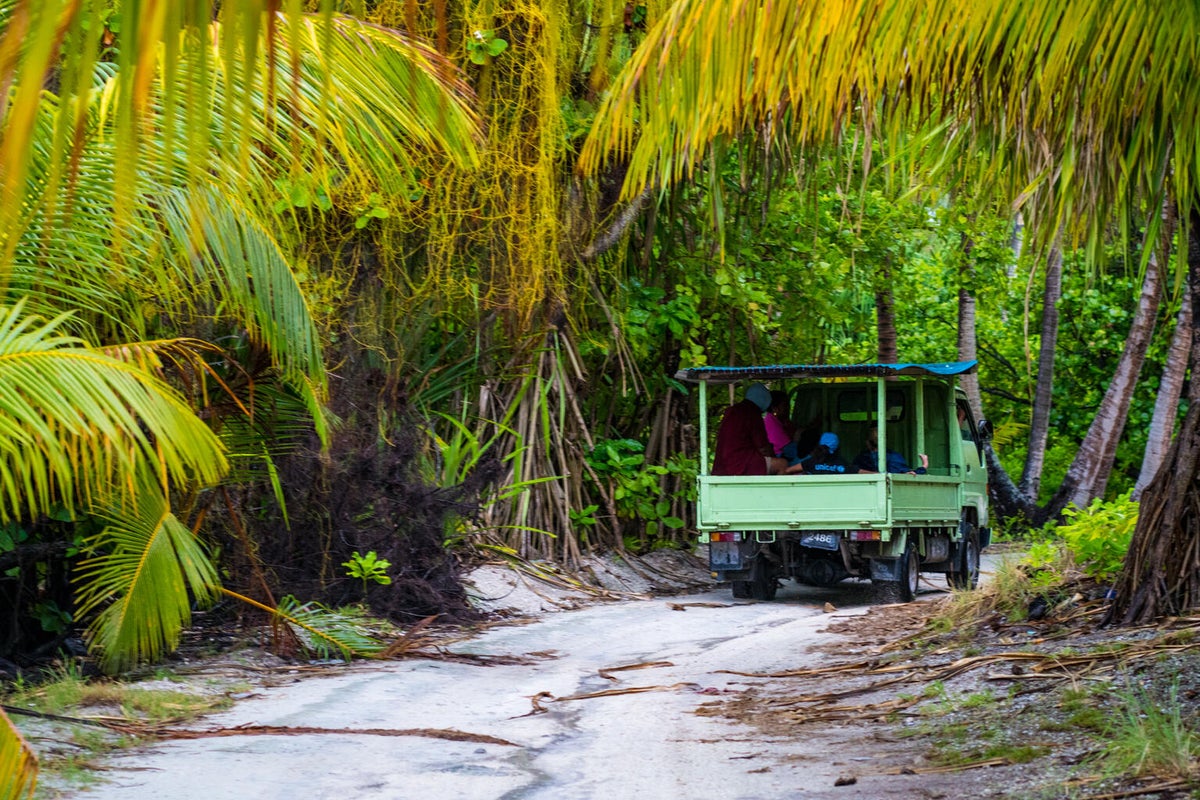
In October 2022, the UNICEF Australia and Pacific teams travelled an arduous journey by plane, boat and truck with our partners from Rotary International, Australia and New Zealand to one of UNICEF’s most remote field offices in the world, Kiribati.
A climate-affected island nation, Kiribati is a place where access to safe and clean water is challenging and increases the likelihood of diseases such as rotavirus. Rotavirus causes a severe form of diarrhoea and is sadly responsible for a significant portion of deaths in under-fives.
UNICEF has been supported by Rotary’s ‘Give Every Child a Future’ program to provide life-saving vaccines in some of the hardest to reach communities, ensuring every child has the opportunity to reach their full potential.
And off roads...
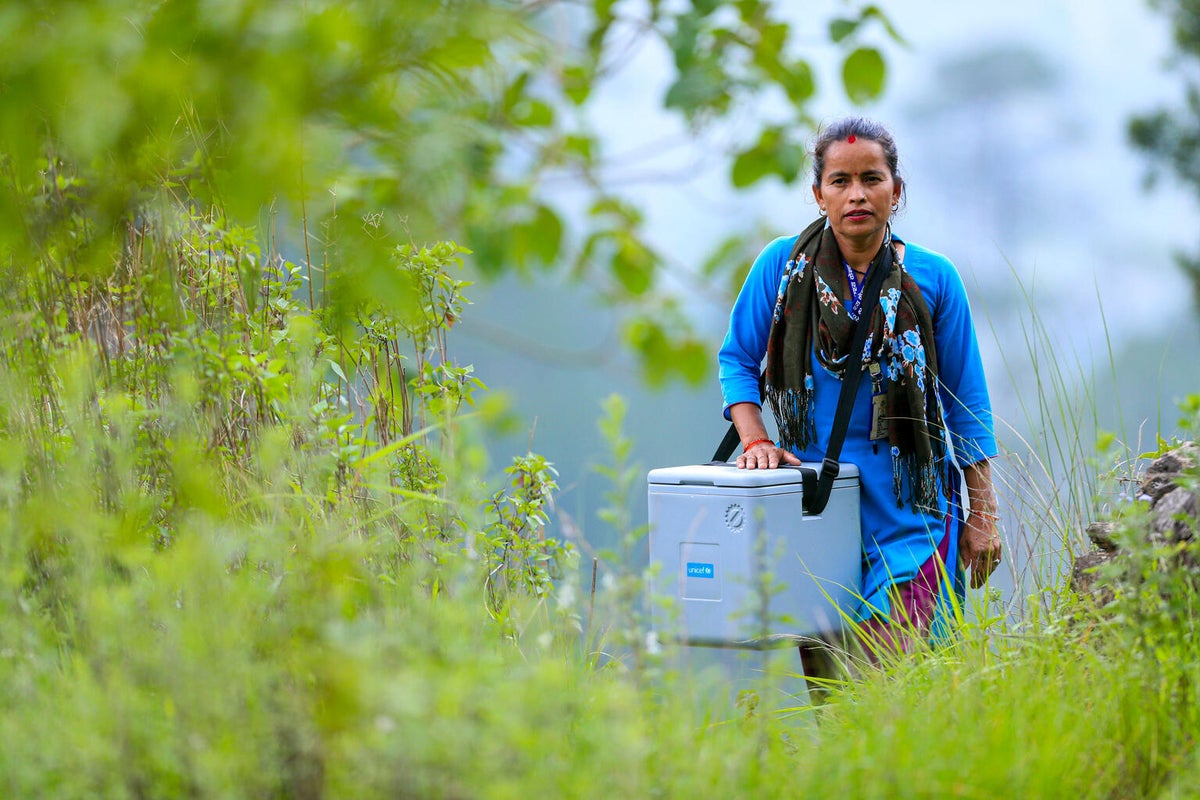
Basanta has been vaccinating children in her community for over 27 years. Every month, alongside fellow health workers, she conducts community sessions in five different areas around Nepal’s remote far west.
They travel by boat...
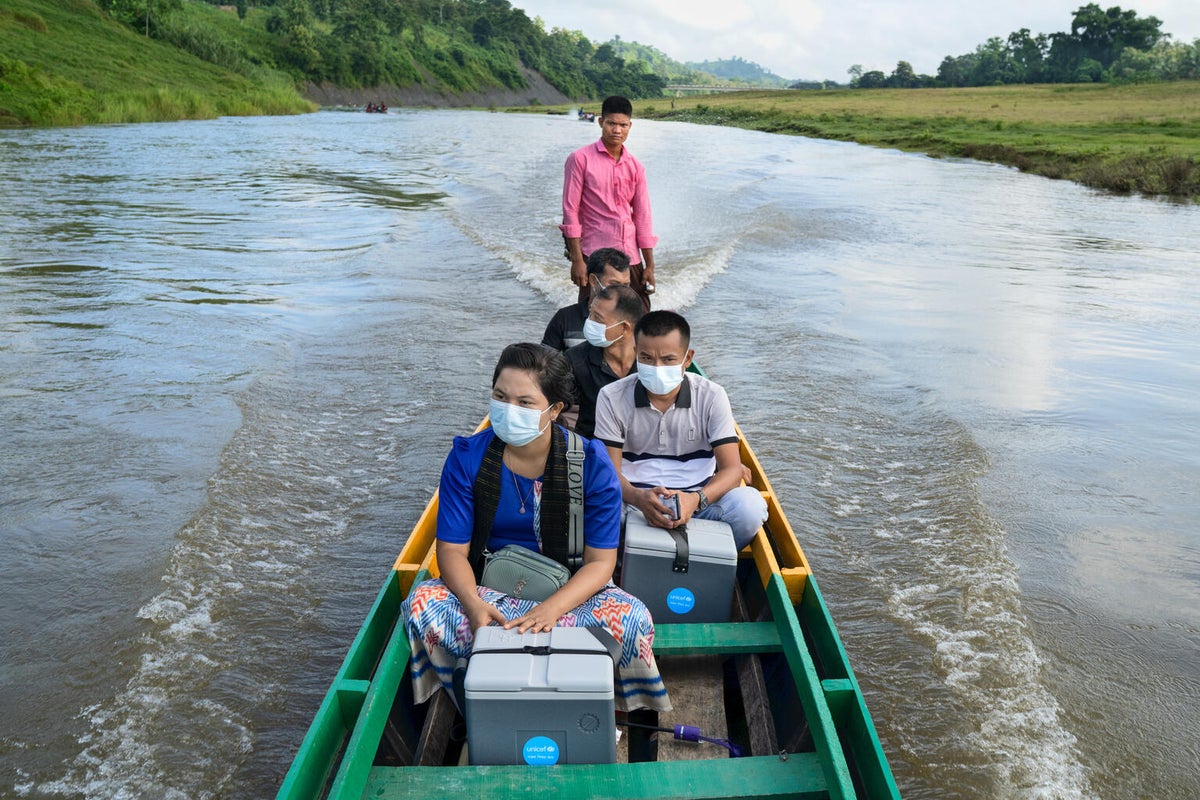
Volunteer health workers travelling to remote rural communities by boat to deliver vaccination sessions for routine childhood immunizations in Bangladesh.
Distance isn’t the only barrier to getting children vaccinated. UNICEF works with community advocates to debunk myths and make sure families know the life-saving benefits of routine immunisations.
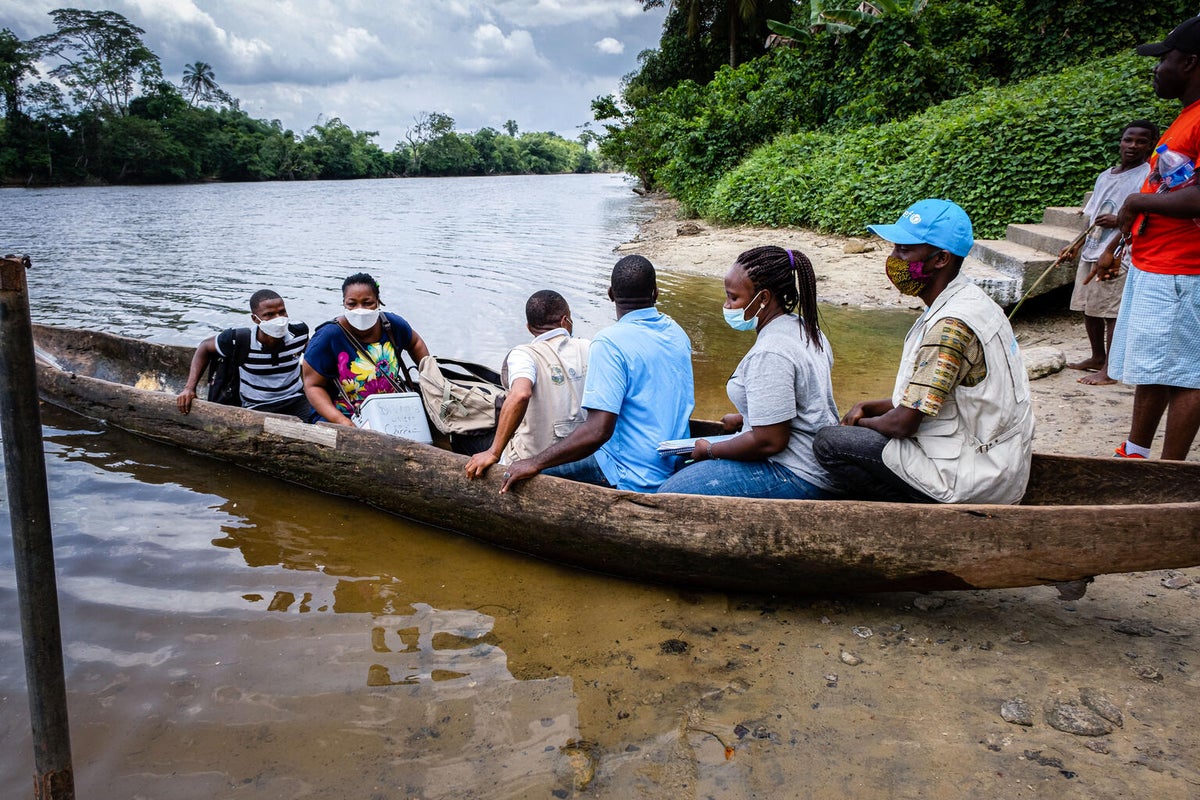
They travel on foot...
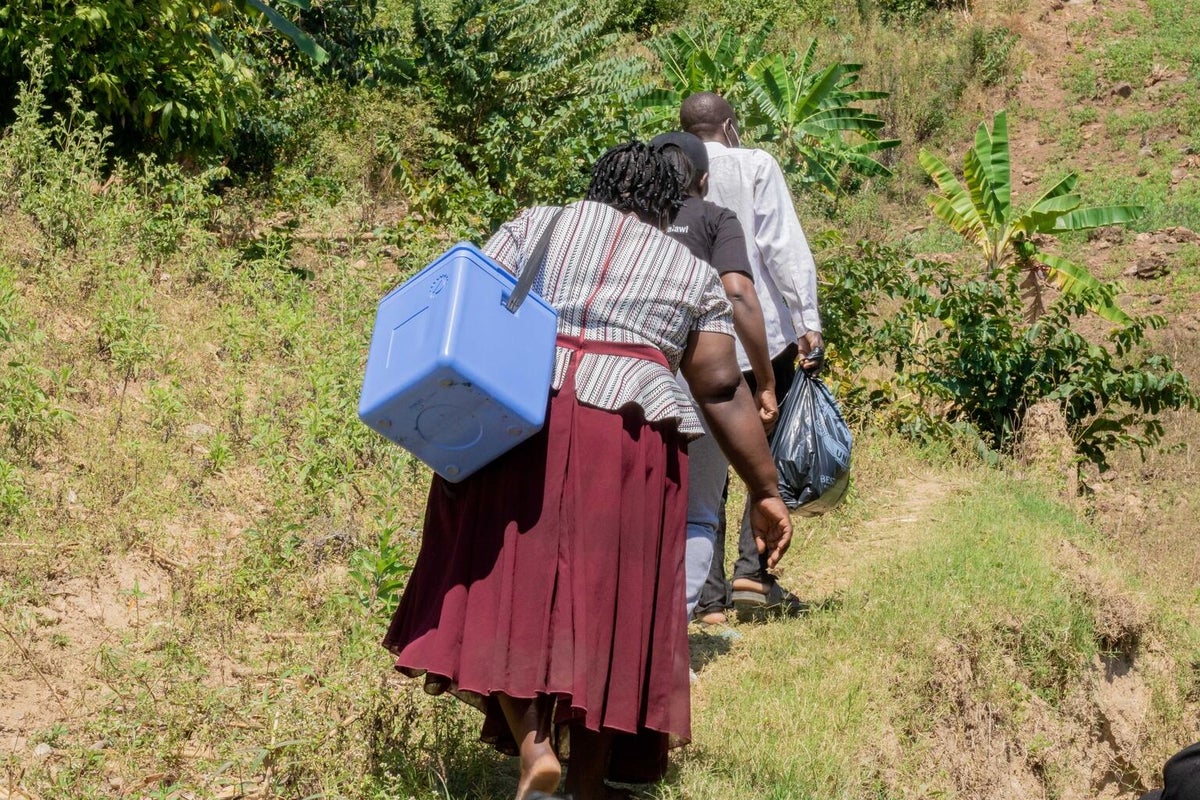
Even when outbreaks occur, UNICEF teams are quick to take action and implement vaccination campaigns. In November 2021, a case of wild poliovirus was detected in Malawi and a public health emergency was declared by the government.
Within 72 hours of that announcement, a team from the Global Polio Eradication Initiative, including UNICEF, had arrived on the ground.
A nationwide immunisation campaign was launched in March 2022, and since the vaccination drive began, about 9 million children had received a polio vaccination.
By bicycle...
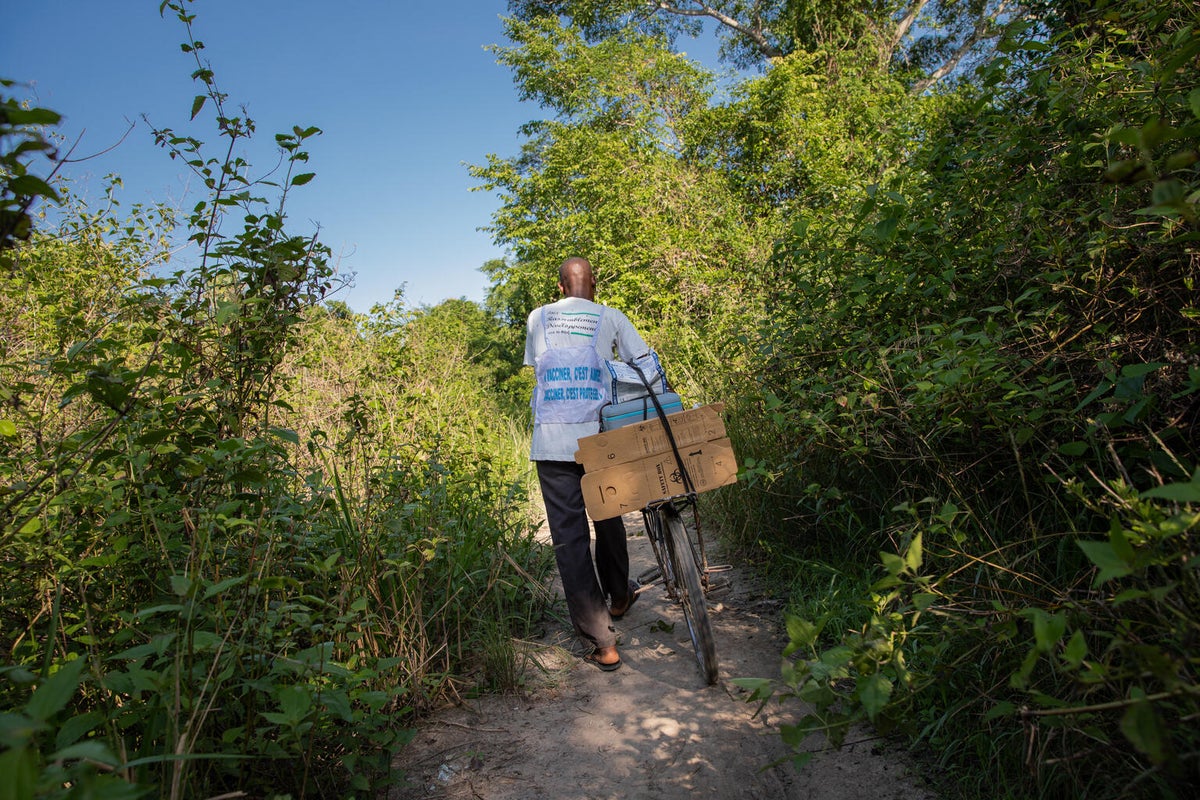
Thierry is a community worker attached to a health centre in the north Ubangi Province. Many remote villages depend on this health centre for children immunisation. With his bicycle and a pirogue, Thierry travels to a village located seven kilometres from the health centre, to follow up on the children's vaccination.
And by air...
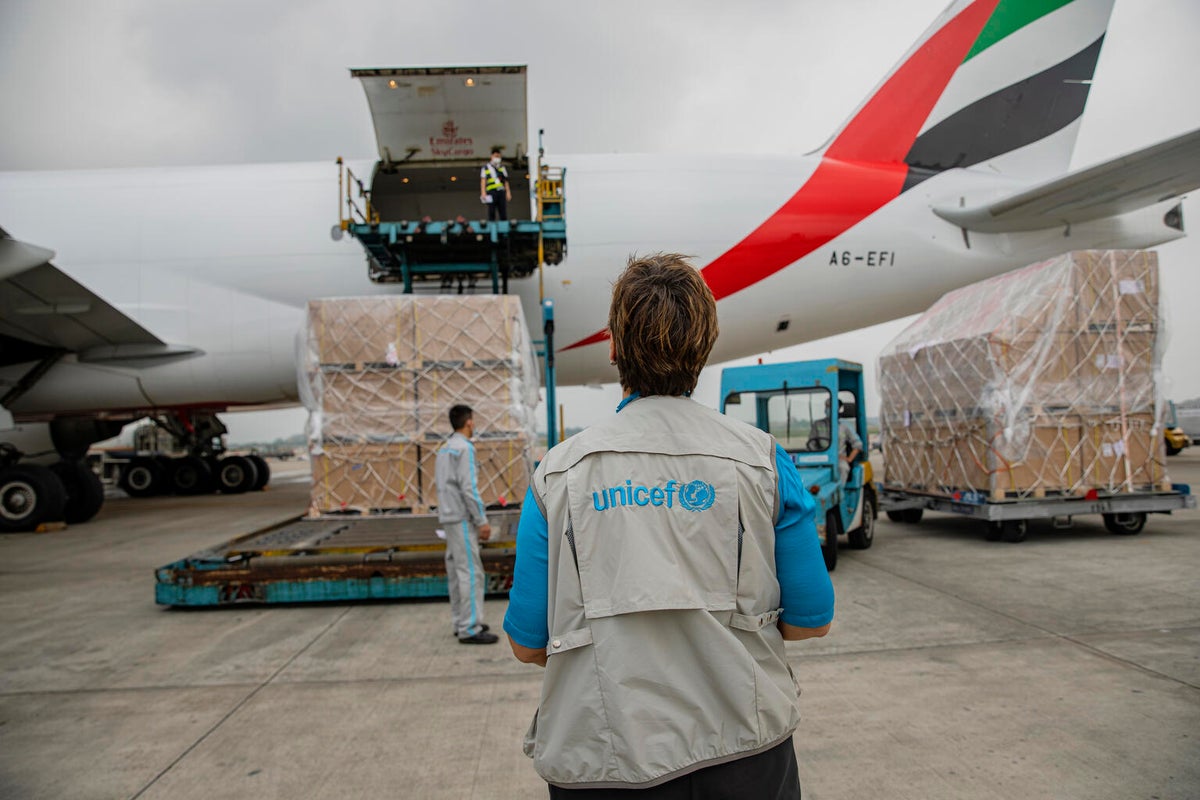
In 2021, UNICEF acquired over 113 million doses of the measles-rubella (MR) vaccine to provide immunisation for children aged between nine months and 15 years in Pakistan. This marked the second-largest procurement of the MR vaccine in UNICEF's history. Due to the significant quantity of vaccines, a complex and time-consuming logistical process was required for transportation.
However, 41 commercial air shipments were successfully delivered over a period of five months, without any delays.
And, they work on the go
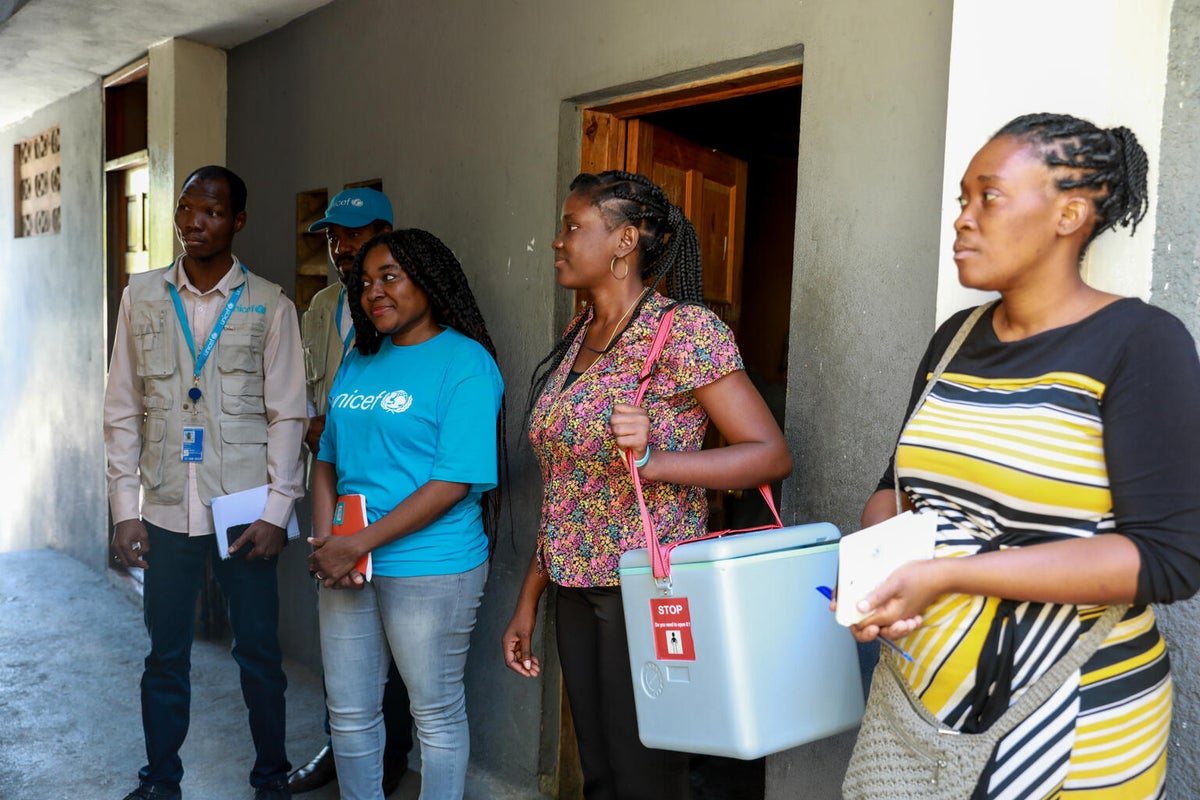
With UNICEF’s help and amidst gang-related violence, Haiti launched a vaccination campaign in 2022 to immunize over 1.64 million people against cholera in response to an outbreak.
“The deadly disease of cholera kills more and more people in Haiti. The oral vaccine can protect thousands of people from the disease. But vaccination teams cannot reach communities while bullets are flying, or they risk being kidnapped,” says Bruno Maes, UNICEF Representative in Haiti. “Vaccinators put their lives at risk to save women’s and children’s lives while they must have broad access to do their job.”
For every child, vaccination
It is crucial, more than ever, that children everywhere can receive life-saving vaccines. Yet, in UNICEF's latest The State of the World’s Children 2023: For Every Child, Vaccination report, public perception of the importance of vaccines for children declined during the COVID-19 pandemic in 52 out of 55 countries studied.
Sadly, a staggering 67 million children missed out on one or more vaccinations between 2019 and 2021 due to service disruption caused by strained health systems and diversion of scarce resources, conflict and decreased confidence.
Vaccinating the world’s children against diseases is no easy task. UNICEF has the expertise and the experience, but we cannot do it alone. We need your help to build a world where every child is protected against deadly diseases.
Vaccinate Children. Save Lives.
Help protect children against preventable diseases with lifesaving vaccines.
Related articles
Stay up-to-date on UNICEF's work in Australia and around the world



